|
Biographical Log of Michael Furstner - Page 153
08 | 09 ||
2010 :
Jan |
Feb |
Mar |
Apr |
May |
Jun |
Jul |
Aug |
Sep |
Oct |
Nov |
Dec || Page :
Previous |
Next
The Martinshof Story -
A Philosophy of Happiness -
Life Awareness -
Maps & other Text series
Most Recent -
Next -
Previous -
Page 1 -
Photos -
Index -
Topics -
MP3s -
Jazclass Links
Sunday & Monday, April 11 & 12 2010
(diary, grass)
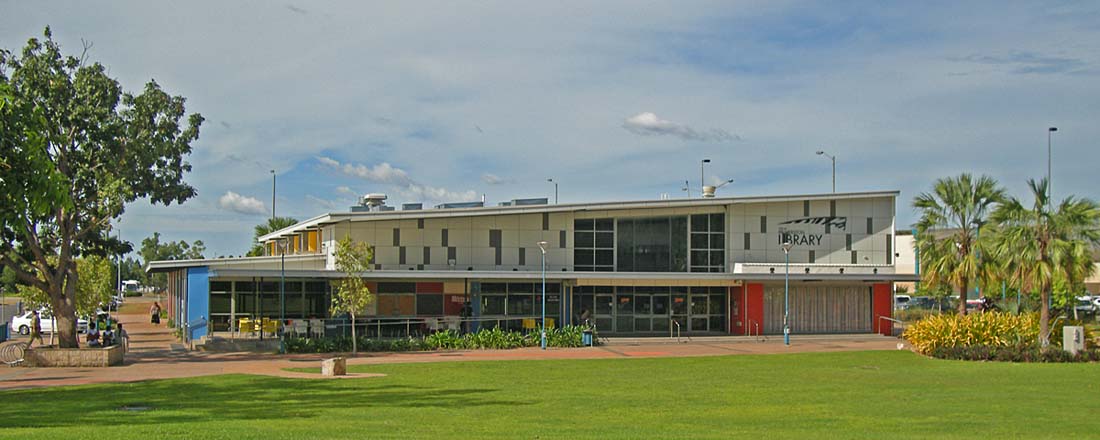 When the happy exuberance of the sky blue is mixed with the fierce heat of the
sun's yellow the two energies cancel one another out, melting away into the
wonderful tranquility of the resultant green.
When the happy exuberance of the sky blue is mixed with the fierce heat of the
sun's yellow the two energies cancel one another out, melting away into the
wonderful tranquility of the resultant green.
Where would humanity be
without this natural omnipresent "tranquiliser"? We would long ago have killed each
other off into extinction, I am quite sure of that!
This mood of tranquility is elevated to an almost spiritual level when
the eye and mind can rest on the predictably regular, even and clean texture of a well mown
lawn, shifting the presence of any unpredictably shaped plants or nervously rustling tree leaves away into the unobtrusive
subconscious background.
Brian has spent half a day
this weekend on the ride-on lawn mower, mowing the lawn around the house, pool, sheds,
my cabin and the grass underneath the mango trees, and tranquility (as experienced from
my cabin patio), reigns supreme. An absolutely wonderful sight.
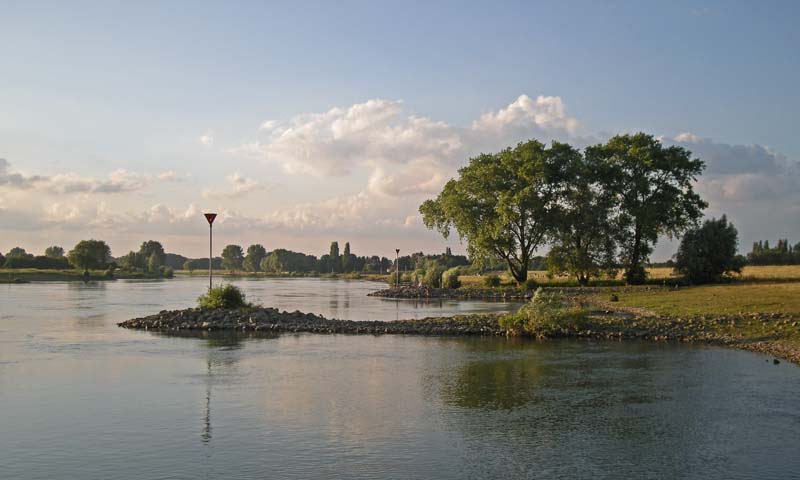 For me grass is almost (but not quite) as good as water : a pond, stream, lake, the
ocean. And whenever there is no water around I try to spend a little time each day at
a place overlooking a lawn. Like the Palmerston Library Bistro for example, or right
here on the Mango farm.
For me grass is almost (but not quite) as good as water : a pond, stream, lake, the
ocean. And whenever there is no water around I try to spend a little time each day at
a place overlooking a lawn. Like the Palmerston Library Bistro for example, or right
here on the Mango farm.
Of course when both these natural spiritual tranquilisers
are found together, a pond in a park or a river in the countryside, the experience is
supreme.
This is why I was so deeply saddened by the closure of Gorssel's iconic pub along the river
IJssel, De Houtwal (now private property with
access denied to the public) which was an ideal location for just such a setting.
Most Recent -
Next -
Previous -
Top -
Page 1 -
Photos -
Index -
Topics -
MP3s -
Jazclass Links
Tuesday, April 13 2010
(diary, Paris-Roubais)
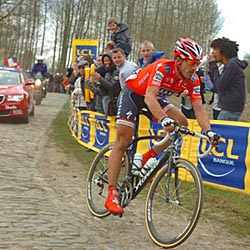 Unlike last year, when it was raining heavily,
during this year's Paris-Roubaix classic one-day
bike race the weather was dry, although rather cold according to the commentators. I
watched the race on SBS TV this Sunday.
Unlike last year, when it was raining heavily,
during this year's Paris-Roubaix classic one-day
bike race the weather was dry, although rather cold according to the commentators. I
watched the race on SBS TV this Sunday.
This most famous one-dayer features 18
narrow cobblestone road sections (each of 1-3 km in length) spread over the second half of the
260 km distance. The winner's trophy is accordingly a bread size cobble stone, one of the
most coveted possessions of the top professional cycling fraternity.
Last year's winner Tom Boonen (from Belgium) was this time clearly outsmarted by the
Swiss rider Fabian Cancellara who in the end had a very comfortable and well
deserved victory.
Many of the big name Tour de France riders were competing in the race,
which was especially significant this time, as the 3rd Etappe of this year's Tour (which will
start in Rotterdam on July the 3rd) will include some of the Paris-Roubais cobblestone sections.
While on the subject of sport :
A sway of convictions again this week of Australian (AFL and NRL) football players
and a very prominent coach, for bad behaviour on and off the field : drunkenness,
sex scandals, drugs, lying.
In a recent TV interview half a dozen prominent AFL
so called "heroes" were asked to name 5 past Australian Prime Ministers. The question was
well above their heads seeing that all had trouble naming even one : "a short fellow with glasses" (John Howard) said one, "George Bush" said another one.
These guys are supposed to be
role models for our Aussie kids!
Most Recent -
Next -
Previous -
Top -
Page 1 -
Photos -
Index -
Topics -
MP3s -
Jazclass Links
Wednesday & Thursday, April 14 & 15 2010
(memories from the Pyrenees)
1955 saw a sudden increase of geology student enrollments at Leiden University, from the
usual half dozen or so to almost 20. The Geology staff felt this could not be right,
must be a fashion fluke, so they decided to conduct at the end of our first year (summer
of 1956) a 2 week mapping exercise for us in the Belgium Ardennes around Comblain
au Pont. That would surely get rid of the fake ones amongst us, they felt.
We were
divided into 3-men groups, each group to map a small area of perhaps 15 square
kilometers. Hauk Fischer, Henk Rijks and myself formed one
group, Group Deux (all three of us also belonging to the same student social club
Pimpernel), and as such we were
known throughout our first 4 years of geology study.
The mapping exercises had in
fact the opposite effect as intended, we all loved it and were determined to continue
with our geology study.
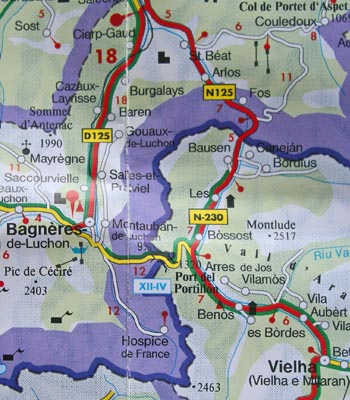 Hauk and I however had some poor experiences hitch hiking in
Belgium, so that when we, later that summer in 1956, set off for the Spanish Pyrenees to
join Richard Boersma as his field assistants for a month, we gave Belgium a miss
and hitch hiked our way along the Rhine in Germany instead.
Hauk and I however had some poor experiences hitch hiking in
Belgium, so that when we, later that summer in 1956, set off for the Spanish Pyrenees to
join Richard Boersma as his field assistants for a month, we gave Belgium a miss
and hitch hiked our way along the Rhine in Germany instead.
Our progress was
slow however, and after only getting as far as Besançon (via Basel) in two days
we ran out off time and decided to take the overnight train to Toulouse.
From there we hiked our way to Bagnères-de-Luchon and finally to the tiny
French border village of Fos.
It was around 5 or 6 PM with no cars
crossing, and the French border guards told us we had to walk across the 2 km
stretch of "no man's land" into Spain by our selves. But they did alert their
colleagues across the border by phone, so that upon our arrival, to our great surprise,
we were greeted by a very enthusiastic English priest who was dying to speak his
native tongue again.
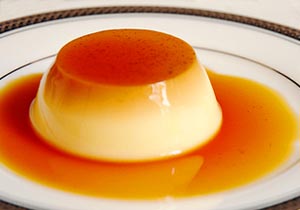 In those days Spain's borders were firmly closed to all foreigners, except for those, like
us, who had official business there. The priest (who was there as a result of an
exchange deal with the UK I believe) took us to a pub in the small village of
Les.
In those days Spain's borders were firmly closed to all foreigners, except for those, like
us, who had official business there. The priest (who was there as a result of an
exchange deal with the UK I believe) took us to a pub in the small village of
Les.
Here we were served a great 4-course meal (including bread
and wine) for the unbelievable sum of just 1 peseta 60 centimos, a 30% discount on the
normal pub price (2.20 pesetas) the priest had negotiated on our behalf.
I can't remember all 4 courses, but it included a wonderful goat cheese and my
very first traditional Spanish flan (caramel pudding).
After completing our dinner the priest took us to a new, almost completed building, the
village's abattoir to be, where we blew up our inflatable rubber mattresses and spent the
night for free on its concrete floor. In the morning, after opening two large doors at
the back we washed and brushed our teeth in the famous Garonne river (here maybe
only 10 meters wide) right behind the abattoir building.
Then it was off to find
a bus to Viella (on the map shown as Vielha), but as we kept pronouncing it like
the English "villa" no-one had any idea what we were talking about, until someone looked
at what was written on our map and said "Oh, you mean
Bjelja? Our first lesson in Spanish pronunciation.
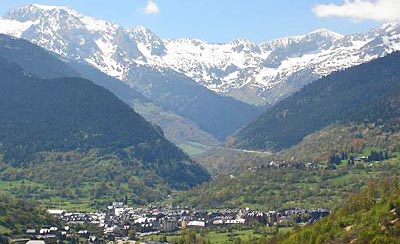 We found a bus that took us to Vielha, where we disembarked and took another bus to Pont de Suert and Senterada.
We found a bus that took us to Vielha, where we disembarked and took another bus to Pont de Suert and Senterada.
After
emerging from a long tunnel through the mountains and barely a dozen kilometers out off
Vielha we were stopped by several wailing men, blood streaming from their faces,
standing in the middle of the road, waving their arms.
A truck, carrying 20 or
30 miners, standing unprotected on its open tray, on their way to work, had gone off
the road and summersoulted down the steep mountain slope for almost 100 meters.
There were, including Hauk and I, only half a dozen passengers on our bus,
including fortunately one priest. The latter immediately disembarked and gave
the last rites to 4 miners killed in the accident. The others climbed or where helped on
board our bus, some bleeding profusely from deep wounds on their faces and
bodies.
Our bus eventually continued its journey, stopping at every village along the
way, disembarking some casualties while surrounded by mobs of wailing women who feared
the worst for their husbands. At last we reached the hospital in Pont de Suert, where
the last and most severely wounded where carried inside.
After dropping off these final injured our bus eventually continued
and we got out at Senterada catching another
bus that took us finally to Cabdella,
where Richard Boersma was waiting for us. As you can imagine, we felt much relieved to see
his happy smiling face.
Other stories from Spain
Comments -
Most Recent -
Next Page -
Previous -
Top -
Page 1 -
Photos -
Index -
Topics -
Jazclass Links
Copyright © 2010 Michael Furstner
|





